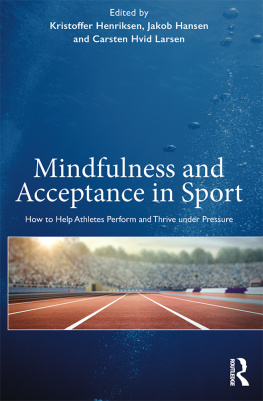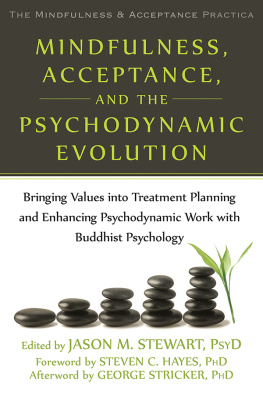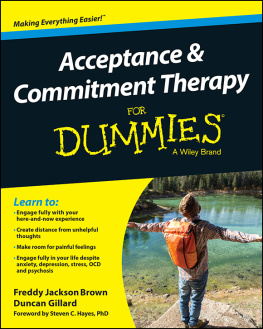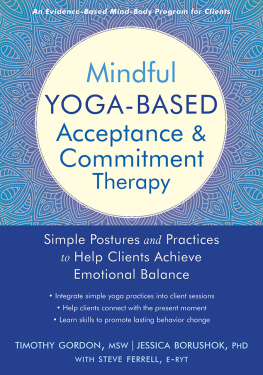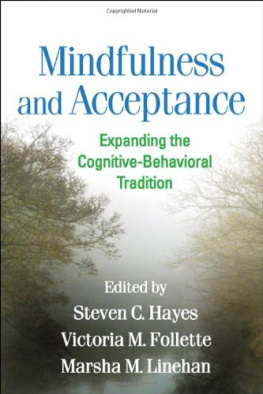I wish someone had taught me mindfulness and acceptance when I was a young sailor fighting to qualify for the Olympic Games. I realize how much energy I wasted trying to control my mind. I sometimes wonder what a difference it would have made if I had simply stopped trying to fight my mind and used all that energy on doing what I had been practicing for. There is so much more freedom in this new approach. Today, as a sailing coach, I work closely with a sport psychologist on helping athletes to direct their focus to what makes a difference in the moment. I always tell my own story to young athletes. All athletes really deserve to make peace with their minds and just engage fully in the sport they love.
Peter Hansen, Danish National Team Coach,
Olympic Sailing
Throughout my career, I have learned how important it is to know who I am and who I want to be. Finding my core values as an athlete but also as a human and later in my career as a husband and a father have been key elements on my path to excel, not only once or twice but continuously. I have had tough defeats and moments with pressure, stress and doubt. Learning to accept difficult feelings in difficult situations but still make brave decisions, move forward and stay true to myself have been vital on this bumpy but challenging and meaningful road.
Mark O. Madsen, Olympic silver medalist and three-time
World Championship silver medalist in wrestling.
Now committed to a path to lead him to the
top as a mixed martial arts fighter
Mindfulness and Acceptance in Sport
Mindfulness- and acceptance-based approaches such as Acceptance and Commitment Therapy (ACT) and Mindfulness Acceptance Commitment (MAC) are gaining momentum with sport psychology practitioners who work to support elite athletes. These acceptance-based, or third wave, cognitive behavioral approaches in sport psychology highlight that thought suppression and control techniques can trigger a metacognitive scanning process, and that excessive cognitive activity and task-irrelevant focus (self-focused attention such as trying to change thoughts) disrupt performance.
Using this perspective, the aim of sport psychology interventions is not to help the athletes engage in the futile task of managing and controlling internal life. Rather, it suggests that sport psychology practitioners should work to increase athletes willingness to accept negative thoughts and emotions in pursuit of valued ends. Key aspects of such interventions include: teaching athletes to open up and accept, teaching athletes to mindfully engage in the present moment, and helping athletes formulate the values and engage in committed actions towards these values.
The goal of Mindfulness and Acceptance in Sport: How to Help Athletes Perform and Thrive under Pressure then is to provide students, researchers, practitioners, and coaches of sport psychology with practical guidance for implementing mindfulness and acceptance approaches in their work with athletes. This book brings together highly experienced practitioners and shares their working methods, exercises, and cases to inspire the sport psychology profession.
Kristoffer Henriksen is an associate professor at the Institute of Sport Science and Clinical Biomechanics at the University of Southern Denmark, and a sport psychology practitioner in Team Denmark.
Jakob Hansen is a full-time private performance consultant in sport, business, and other performance domains. From 2008 to 2018 he was a sport psychology practitioner in Team Denmark.
Carsten Hvid Larsen is an associate teaching professor at the Institute of Sport Science and Clinical Biomechanics at the University of Southern Denmark, and a sport psychology practitioner in Team Denmark.
Mindfulness and Acceptance in Sport
How to Help Athletes Perform and Thrive under Pressure
Edited by Kristoffer Henriksen, Jakob Hansen and Carsten Hvid Larsen

First published 2020
by Routledge
52 Vanderbilt Avenue, New York, NY 10017
and by Routledge
2 Park Square, Milton Park, Abingdon, Oxon, OX14 4RN
Routledge is an imprint of the Taylor & Francis Group, an informa business
2020 Taylor & Francis
The right of Kristoffer Henriksen, Jakob Hansen, and Carsten Hvid Larsen to be identified as the authors of the editorial material, and of the authors for their individual chapters, has been asserted in accordance with sections 77 and 78 of the Copyright, Designs and Patents Act 1988.
All rights reserved. No part of this book may be reprinted or reproduced or utilised in any form or by any electronic, mechanical, or other means, now known or hereafter invented, including photocopying and recording, or in any information storage or retrieval system, without permission in writing from the publishers.
Trademark notice: Product or corporate names may be trademarks or registered trademarks, and are used only for identification and explanation without intent to infringe.
Library of Congress Cataloging-in-Publication Data
A catalog record for this book has been requested
ISBN: 978-1-138-62399-6 (hbk)
ISBN: 978-1-138-62400-9 (pbk)
ISBN: 978-0-429-43523-2 (ebk)
Typeset in Bembo
by Apex CoVantage, LLC
To all you athletes who fight, sweat and struggle every day in the pursuit of what truly matters to you. You all have hopes and dreams, and doubts that you will ever reach them. So very human. So very right.
To all the athletes we have worked with. Thank you. Thank you for inviting us along on your journeys. Thank you for allowing us to experiment. Thank you for walking many miles by our sides. Without your ambitions and struggles, we can truly say that the ideas in this book would have never come to us.
To our lovely families. Thank you for being who you are.
Contents
Kristoffer Henriksen, Peter Haberl, Amy Baltzell, Jakob Hansen, Daniel Birrer and Carsten Hvid Larsen
Section I
How to Work With the Key Processes of Mindfulness and Acceptance in Elite Sport
Gustaf Reinebo, Kristoffer Henriksen and Tobias Lundgren
Carsten Hvid Larsen, Gustaf Reinebo, and Tobias Lundgren
Jakob Hansen and Peter Haberl
Daniel Birrer, Greg Diment, and Olivier Schmid
Mark W. Aoyagi and Jessica D. Bartley
Section II
Applied Cases, Good Examples and Practitioner Struggles
Carsten Hvid Larsen and Kristoffer Henriksen
Sren Svane Hoyer, Astrid Becker-Larsen, Jakob Hansen and Kristoffer Henriksen
Mark W. Aoyagi and Jonathan Fader
Kristel Kiens and Carsten Hvid Larsen
Amy L. Spencer, Keith A. Kaufman, Carol R. Glass, and Timothy R. Pineau
Johan Ekengren
Anders Meland
Anne Marte Pensgaard
Amy Baltzell, Philipp Rothlin, and Gran Kentt
John Baranoff and Renee N. Appaneal
Hin Yue (Henry) Li and Ning Su
Kristoffer Henriksen, Carsten Hvid Larsen, and Jakob Hansen
Mark W. Aoyagi, Ph.D., is co-founder and senior consultant for Sport & Performance Excellence Consultants, a performance psychology practice in Denver, Colorado; and Director of Sport & Performance Psychology and Professor in the Graduate School of Professional Psychology at the University of Denver. He has worked with the Denver Broncos, Denver Nuggets, USA Track and Field, Colorado Mammoth, and several NCAA athletic departments. He is a licensed psychologist in the state of Colorado, a Certified Mental Performance Consultant (CMPC) by AASP (Association for Applied Sport Psychology), and is listed in the US Olympic Committee (USOC) Sport Psychology Registry. He earned a Ph.D. in Counseling Psychology with an emphasis in Sport Psychology from the University of Missouri and was the Sport Psychology Post Doctoral Fellow at the University of Southern California. Prior to that, he completed a B.S. in Exercise and Sport Science and a B.S. in Psychology from the University of Utah and a M.S. in Kinesiology, Sport Psychology emphasis, from Georgia Southern University. He also completed a Graduate Business Certificate in Management from the University of Denver Daniels College of Business. He played rugby, football and baseball, and wrestled competitively, and now enjoys a variety of recreational sports and outdoor activities.

